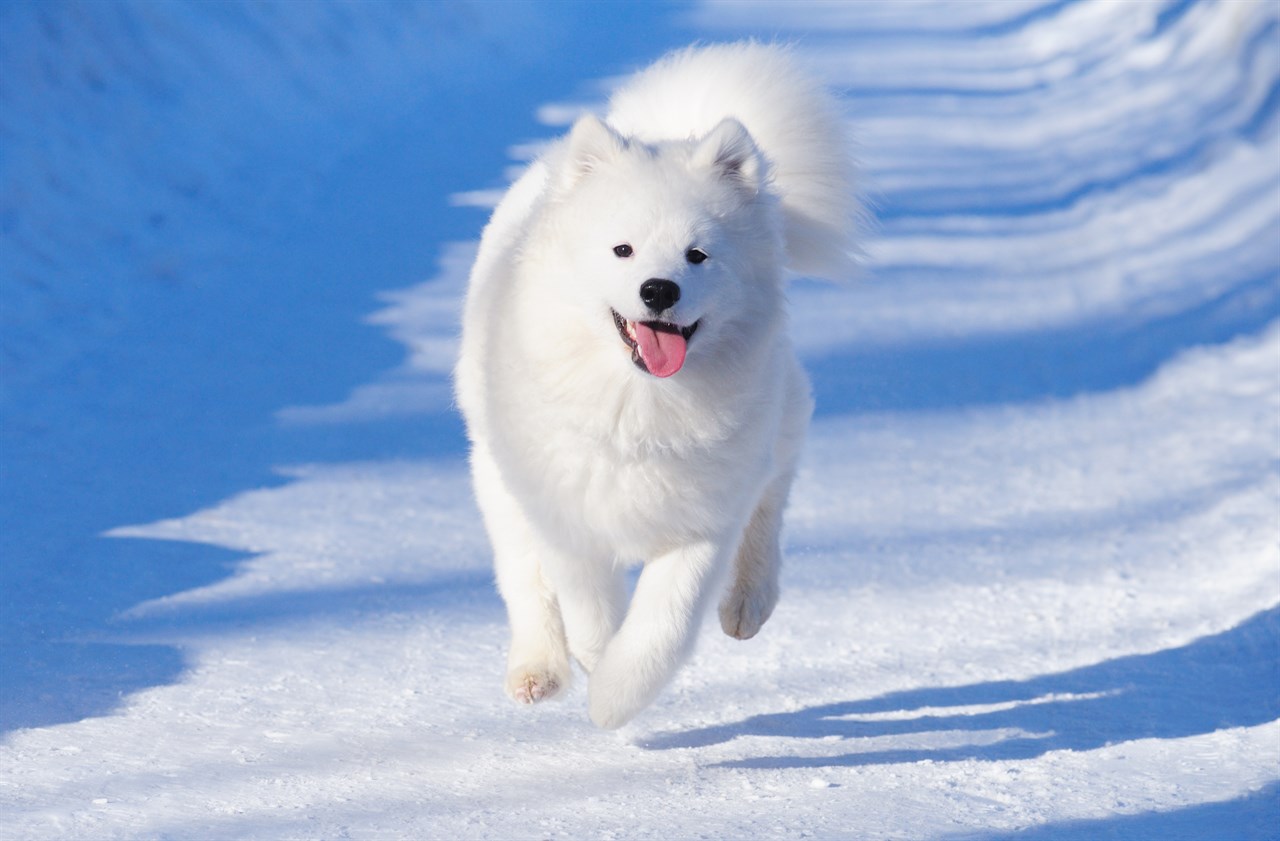The Trainability of Samoyeds: A Delightful Challenge

When it comes to training, Samoyeds offer a unique blend of intelligence, independence, and charm. They are indeed trainable dogs, but their trainability often comes with its own set of challenges due to their strong-willed and independent nature.
Characteristics Affecting Trainability
Intelligence
Samoyeds are intelligent dogs. They can grasp commands and tasks relatively quickly when motivated. However, their intelligence can also lead to independent thinking, making them occasionally selective about which commands they choose to follow.
Independence
Samoyeds have a history of working alongside humans in challenging environments, which has made them self-reliant and independent thinkers. While this independence can be an asset, it can also lead to a "what's in it for me" attitude during training.
Playfulness
Their playful nature can be both a blessing and a challenge. While they are eager to engage with their owners, they may become easily distracted during training sessions if they find something more interesting or exciting.
Social Nature
Samoyeds are naturally social dogs. They thrive on human interaction and often respond better to positive reinforcement techniques than harsh discipline.
Training Tips for Samoyeds
To successfully train a Samoyed, consider the following tips:
- Positive Reinforcement: Use positive reinforcement techniques such as treats, praise, and affection to motivate your Samoyed during training. They respond well to rewards for good behaviour.
- Consistency: Be consistent in your commands, expectations, and rewards. Samoyeds benefit from a structured routine and clear communication.
- Early Socialisation: Expose your Samoyed to a variety of people, animals, and environments from a young age. This helps them become well-adjusted and less prone to anxiety or fear-related behaviours.
- Patience: Be patient and understanding during training. Samoyeds may take their time to grasp commands, and they can be sensitive to harsh treatment.
- Short Training Sessions: Keep training sessions short and engaging. Samoyeds may lose interest if sessions become too long or repetitive.
- Obedience Classes: Consider enrolling your Samoyed in obedience classes led by a professional trainer. This can provide structured training and socialisation opportunities.
- Exercise: Ensure your Samoyed receives adequate physical and mental exercise. A tired dog is often more focused and receptive to training.
Can You Train a Samoyed to Be Off Leash?
Training a Samoyed to be off-leash can be a bit more challenging than with some other breeds due to their independent nature and occasional selective hearing. However, it's not impossible. With consistent and patient training, many Samoyeds can learn to be off-leash in controlled and safe environments. Here are some key considerations:
- Recall Training: A strong recall command is essential. Practise this in safe, enclosed areas, gradually increasing the level of distraction as your Samoyed becomes more reliable.
- Positive Reinforcement: Continue to use positive reinforcement to reward your Samoyed for returning to you when called.
- Consistent Practise: Consistency is crucial. Regularly practise off-leash training to reinforce the behaviour.
- Safety Precautions: Always prioritise safety. Be aware of your surroundings, potential hazards, and other dogs or wildlife that could distract your Samoyed.
- Off-Leash Areas: Use designated off-leash dog parks or areas where your Samoyed can enjoy some freedom while still being supervised.
In conclusion, Samoyeds are trainable dogs, but their independent nature and playfulness can pose challenges. Patience, positive reinforcement, and consistent training are key to success. While many Samoyeds can eventually be trusted off-leash in controlled environments, it's essential to prioritise safety and understand that individual dogs may vary in their off-leash reliability.